By Sue Pascoe
Editor
WANTED: PUPPY RAISERS. If your kids are begging for a dog or you’re living in an empty-nest situation and you love dogs, the Canine Companions for Independence (CCI), founded in 1975, may provide a solution.
Pacific Palisades resident Claire Van Konynenburg said she learned about the program because one of her two house dogs had been a CCI dog. The canine refused to go through a door unless it was opened all the way, which meant it couldn’t be used for the disabled. About 50 percent of dogs don’t make it through training.
Those dogs are then reclassified as a COC (change of career) dog. Instead of being assigned to the disabled, they might become a guide dog, a customs dog, trained for bomb detection or a house pet, such as the one acquired by the Van Konynenburgs.
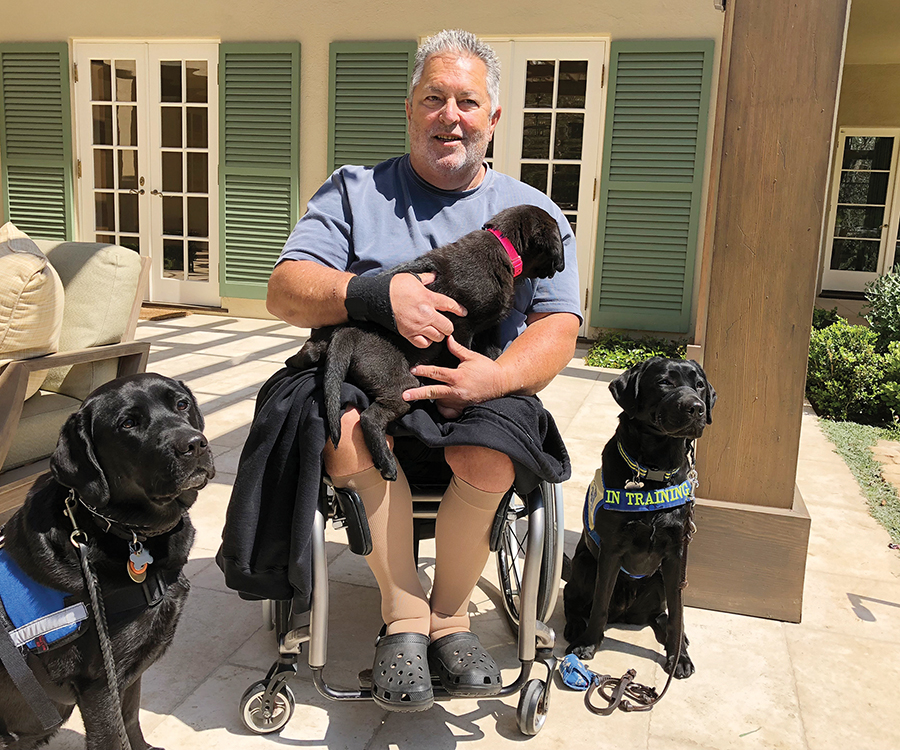
When the family’s third child, Katilyn, wanted another dog (they already had two), Van Konynenburg stopped to contemplate.
An extended family member, who was 17, had been recently paralyzed in a traffic accident and “I felt devastated,” Van Konynenburg said. “As a mom, I wanted to help.”
What could make a difference? A dog who is trained to help the disabled.
And so, the Van Konynenburgs got their first CCI puppy, and began the training process.
How hard is it to raise a puppy for 14-16 months, knowing you have to give it up?
“I made it clear at the beginning how long the puppy would be with us,” said Claire, who noted that when the family gave the dog back to CCI, her kids realized that “When you give back, you get more in return.”
“I tell people, I love the dog, but I don’t need the dog,” said Claire, who is now co-raising a third puppy with her sister. She and husband Mike have four children: Allison, 25, a high school teacher in Nashville; Jenny, a graduate student at Northwestern; Kaitlyn, 20, a sophomore at USC and Garrett, 16, who attends Loyola.
The second question Claire is often asked: “I travel so much, how can I raise a dog for CCI?”
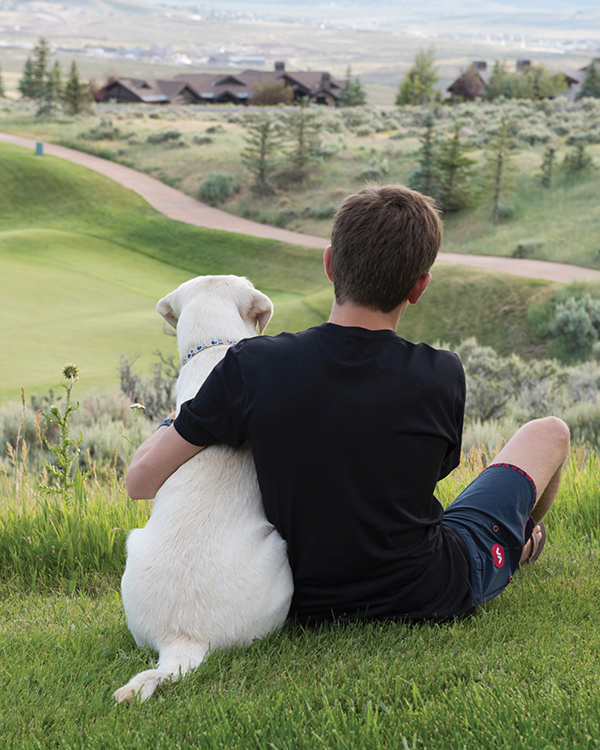
“I travel a lot,” Van Konynenburg said, noting that a puppy can go “visit” with another person who is raising a dog for CCI. “It’s wonderful and good for the dog to go to different homes.”
There is a screening process before CCI gives someone an eight-week-old puppy.
This includes an interview in the prospective puppy raiser’s home, so the yard and environment can be deemed safe.
A booklet with instructions comes with the dog, and a Canine Companion instructor is available to answer questions. A puppy raiser is asked to go to occasional puppy classes, where the dog is further socialized and where the “owner” can learn more puppy-raising techniques.
After about 14 months, the puppy goes to a professional trainer for another six- to nine-month training where it learns about 40 commands.
If the dog passes, then it’s graduation day, and the puppy raiser hands the leash to the new owner.
“When you go to the graduation, you see the joy when the dog is partnered with a recipient,” said Van Konynenburg, one of the only people in the Palisades currently raising a CCI puppy.
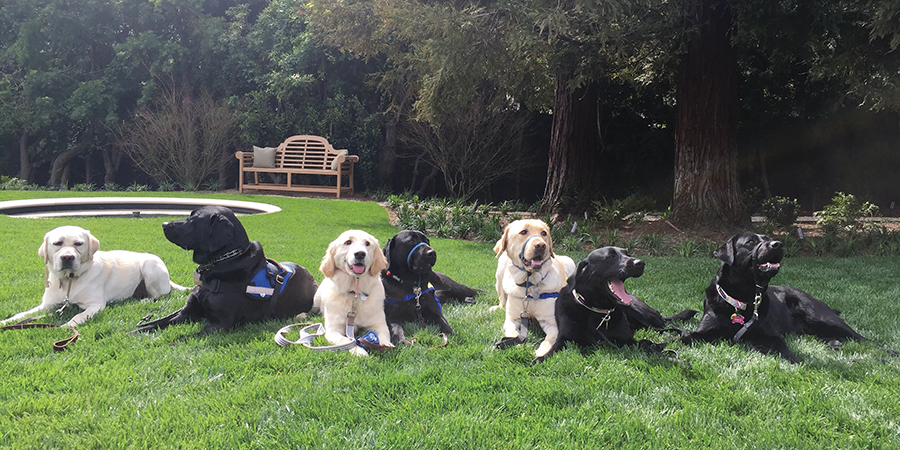
Photo courtesy Claire Van Konynenburg
Glen Gregos, a local CCI board member and recipient of a service dog, said “When you see how a dog changes lives, it’s magical.”
Gregos suffered a spinal-cord injury when he was 15 and is confined to a wheelchair. He finished high school and then college with a degree in business administration. In 2005, he went to the Internet and typed in “dog and wheelchair” and a year later received his first service dog from CCI.
“After so many years of working my wheel- chair, my shoulder was starting to go out,” he said, but his service dog could help pull the chair, and could also help with shopping by holding a small bag while pulling Gregos.
His service dog can turn a light switch on and off, open and close the door, and if Gre- gos drops something, the dog picks it up and gives it to him.
For people who lack manual dexterity, the dog is trained to give a credit card to a clerk. “But he [the dog] doesn’t have to pay for it,” Gregos joked.
“The dog is sort of an icebreaker,” he said. Before he had the dog, it seemed that people were afraid to speak to him, but now people are more willing to come up and talk to him.
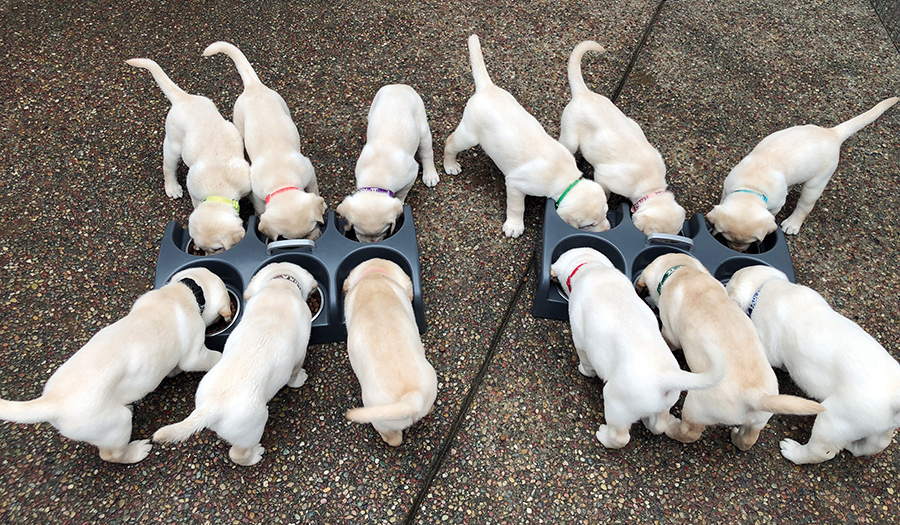
“I’ve seen the difference a dog makes with children who have cognitive disabilities,” he said, adding that CCI dogs are vitally important to many veterans.
The person raising the puppy assumes the veterinarian bills, and the cost of the food, because dogs are given free to those who are disabled and in need.
One of Van Konynenburg’s “puppies,” Petunia, went on to become a dog that was bred for puppies.
Labradors and golden retrievers, or a combination of both, are generally bred because of their temperament and their willingness to fetch.
The dogs are trained to assist adults with physical disabilities, those with hearing issues, children who may have physical, cognitive and developmental disabilities, and those who work in a visitation, education or healthcare setting.
The CCI dog is essentially raised by three people before going to its final owner: 1.) the homeowner where the puppies live with the mother for 8 weeks; 2.) the puppy raiser and 3.) the professional trainer.
In addition to raising puppies, there is an added bonus: “I love all the people I’ve met through CCI,” Van Konynenburg said.
To request a puppy-raiser application, visit cci.org/puppyraiser or call (800) 572-BARK.

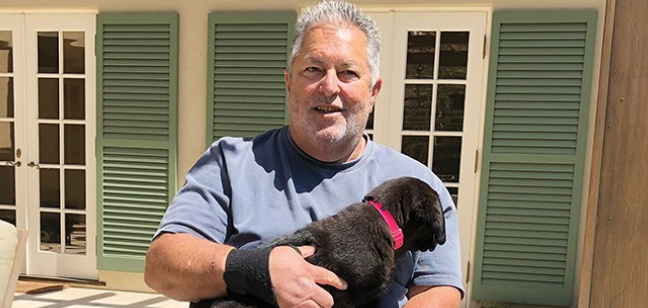








You must be logged in to post a comment.